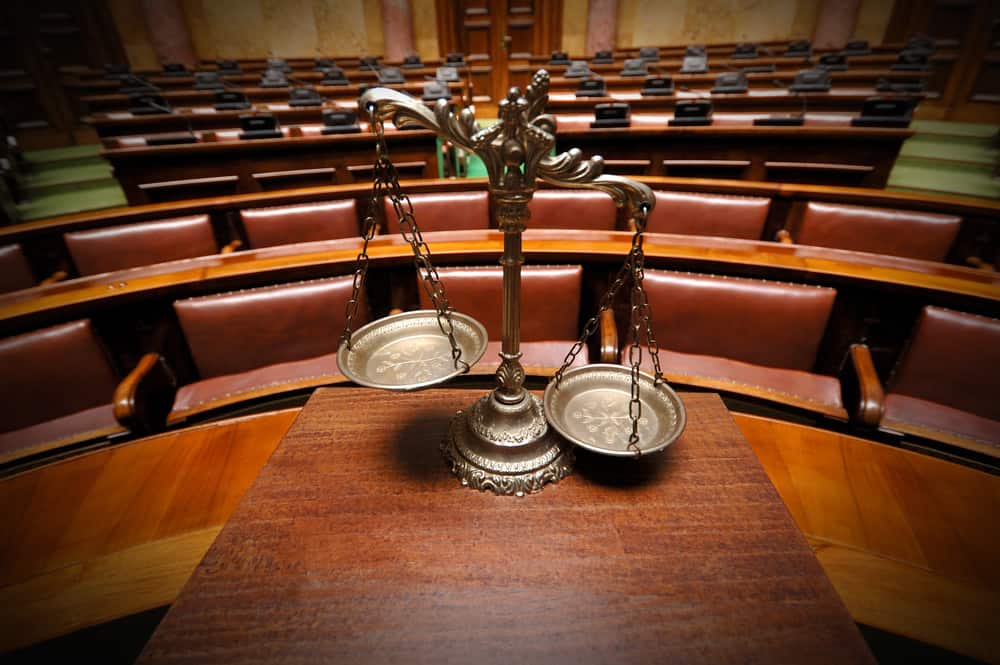
What Is a Bench Trial and How Is it Different from a Jury Trial?
Most people assume that there are only a few outcomes that can occur in a criminal case. In most circumstances, the defendant may be offered a plea bargain by the court. If this happens, the defendant may be given a lighter sentence in exchange for entering a guilty plea. In other situations, the defendant may opt to go to a jury trial.
In a jury trial, the defendant and his or her lawyer will plead their case in the hopes of convincing the jury to issue a verdict of not guilty. However, this is not the only type of trial that is available to a defendant. In some cases, a defendant may have the option to undergo a bench trial.
Bench Trials vs Jury Trials
Most people assume that there are only a few outcomes that can occur in a criminal case. In most circumstances, the defendant may be offered a plea bargain by the court. If this happens, the defendant may be given a lighter sentence in exchange for entering a guilty plea. In other situations, the defendant may opt to go to a jury trial.
In a jury trial, the defendant and his or her lawyer will plead their case in the hopes of convincing the jury to issue a verdict of not guilty. However, this is not the only type of trial that is available to a defendant. In some cases, a defendant may have the option to undergo a bench trial.
What Is A Bench Trial?
Essentially, a bench trial is very much like a standard jury trial with one major exception. Just like a jury trial, a defendant and a defense attorney plead their case in a court while the prosecution tries to establish the guilt of the defendant. However, in a bench trial, there is no jury present to hear these arguments.
Instead, only a judge presides over the case to hear the arguments from the prosecution and the defense. Of course, this is not a great option for all types of trials. For example, a murder case would not be argued in a bench trial because a single judge cannot be expected to reach a fair conclusion that is normally reached by deliberation.
Bench trials are normally used in less serious cases, such as:
- Traffic cases
- Civil cases
- Cases involving juveniles
The Bench Trial Process
In order to set up a bench trial, the defendant and his or her lawyer must issue a formal request to the court. Typically, a defendant will be given the option to choose between a jury trial and a bench trial.
In many cases, a lawyer may advise a defendant to enter a plea bargain or to opt for a jury trial. This is because jury trials are typically better for defendants. In jury trials, even one dissenting juror can turn the case in favor of the defendant. In a bench trial, however, the final decision of the defendant’s guilt or innocence is only up to one person: the judge plane charter.
After the defendant and the defense attorney file the request for a bench trial, they must wait for the decision of the judge. If the judge believes that it is an appropriate case for a bench trial, he or she will grant the request. However, it is possible for the judge to deny the request for a bench trial and move forward with scheduling a jury trial.
Benefits of a Bench Trial
While jury trials can sometimes play out in favor of the defendant, a bench trial can also be beneficial for the defendant in certain situations. Although most cases are better suited for a plea bargain or a jury trial, there are certain factors that make a case ideal for a bench trial.
For example, a bench trial might be appropriate if the case involves:
- Highly complex or detailed legal issues
- A need for a speedy resolution
- Facts or information that could reflect poorly on the defendant
Sometimes, a particular case will involve a rarely used, obscure, or complex law. In these cases, a bench trial might be more appropriate because a judge may have more experience with that law than a juror would have. Also, some jurors may be more likely to decide a case based on emotion rather than cold facts.
Some cases may involve information that could make the defendant look bad, whether or not they are related to the case at hand. For example, if a person is accused of money laundering and, during the course of the case, it is revealed that the defendant had an affair, the jury might look poorly on the defendant. This fact, even though it is irrelevant to the issue being tried, might sway the jury to rule more harshly on the defendant.
Finally, some defendants may wish to wrap up legal proceedings as quickly as possible. Jury trials take much longer than bench trials because jurors must be summoned, screened, and chosen. Bench trials are typically far shorter than jury trials.
Conclusions
In most cases, a defense attorney can advise a client on the necessity of a bench trial. Consulting with a defense attorney on this issue is the safest way to make the right choice in a particular legal case.
Have you been charged with a crime in Houston, TX.? Attorney Brett Podolsky can offer the aggressive legal defense you need to protect your rights. Contact his office today at 713-227-0087.